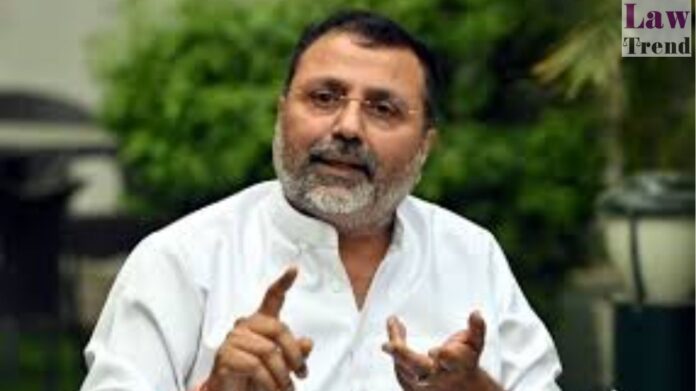The Supreme Court has strongly criticised BJP Member of Parliament Nishikant Dubey for his “highly irresponsible” and “scandalous” remarks targeting the apex court and Chief Justice of India Sanjiv Khanna, stating that such utterances tend to lower the authority of the judiciary.
A bench comprising Chief Justice Sanjiv Khanna and Justice Sanjay Kumar, while hearing a plea seeking contempt action against Dubey, refrained from initiating proceedings but delivered stern observations in a detailed order released on Thursday.
“We are of the firm opinion that courts are not as fragile as flowers to wither and wilt under such ludicrous statements,” the bench remarked, adding that the MP’s comments reflect a “penchant to attract attention by casting aspersions” on the judiciary.
The remarks in question were made by Dubey in the context of the Supreme Court’s hearing of petitions challenging provisions of the Waqf Act. He had accused the apex court of “taking the country towards anarchy” and alleged that “Chief Justice Sanjiv Khanna is responsible for the civil wars taking place in the country.”
Though the bench dismissed the contempt plea on May 5, it minced no words in condemning the content and tone of Dubey’s statements.
“There is no doubt that the utterances tend to scandalise and lower the authority of the Supreme Court of India, if not interfere or tend to interfere with the judicial proceedings pending before this Court,” the order noted.
The court also took exception to Dubey’s attribution of communal unrest to judicial actions. “The statements impute motives to the bench by naming the CJI as responsible for inciting religious wars,” the bench said, adding that the remarks reveal “a clear ignorance of the role of constitutional courts under the Constitution.”
While rejecting the contempt petition, the CJI emphasised that “any attempt to spread communal hatred or indulge in hate speech must be dealt with an iron hand.”
The court concluded that although such remarks cannot shake public confidence in the judiciary, they represent “a desire and deliberate attempt” to do so—an act the court deemed unacceptable.




